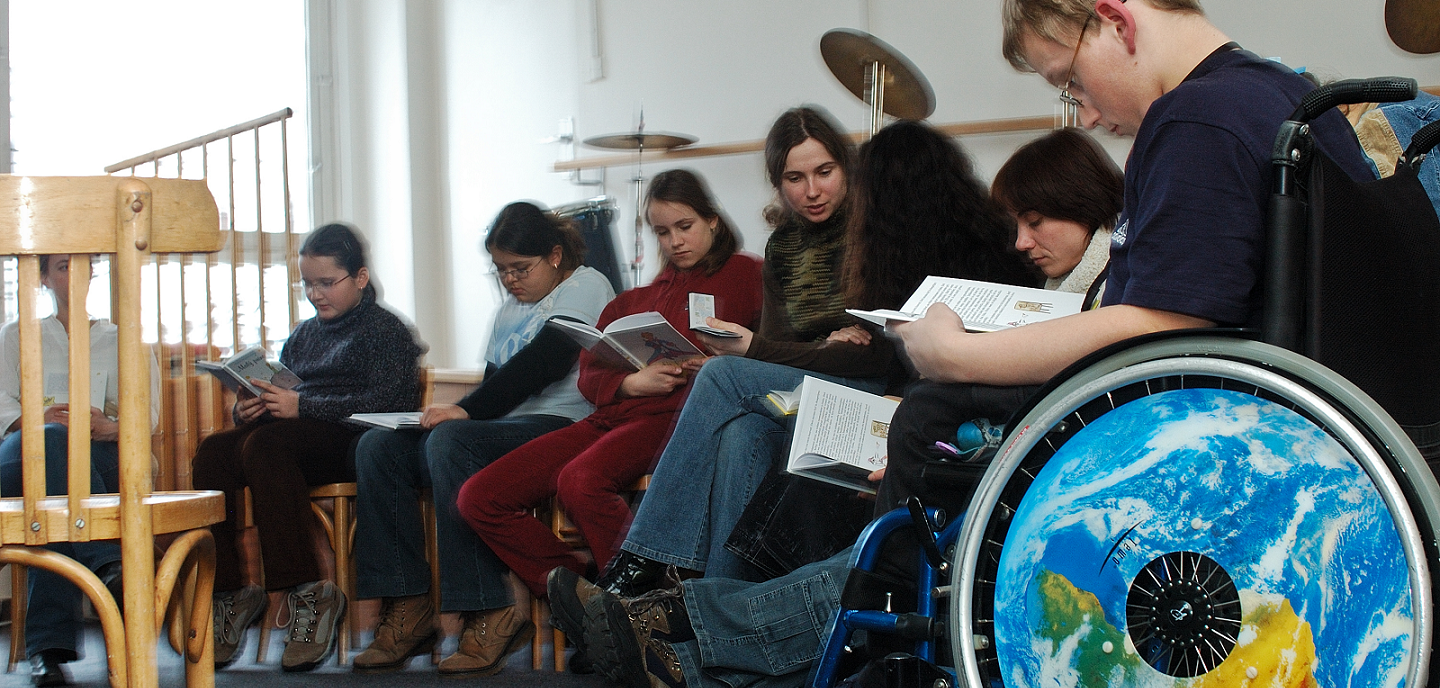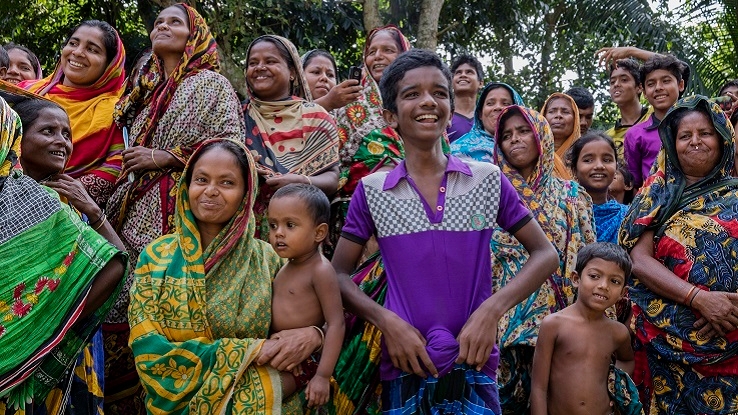Including persons with disabilities and expanding equitable opportunities are at the core of the World Bank Group’s work to build sustainable, inclusive communities, aligned with the institution’s goals to end extreme poverty and promote shared prosperity.
The World Bank integrates disability into development through its analytical work, data collection, and good-practice policies. The World Bank also addresses disability issues in its operations across a wide range of sectors, including promoting access to infrastructure facilities and social services, rehabilitation, skills development, creating economic opportunities, and working with organizations for persons with disabilities, focusing on the most vulnerable among people with disabilities—such as women and children—and influencing policies and institutional development. The Global Disability Advisor’s team serves as a focal point for ongoing advisory and analytical support to operational teams on disability-inclusive approaches in project design and implementation. The World Bank revised its Disability Inclusion and Accountability Framework in 2022, the initial version of which was launched in June 2018, to offer a roadmap for:
- Including disability in the World Bank’s policies, operations, and analytical work; and
- Building internal capacity for supporting clients in implementing disability-inclusive development programs.
The framework is relevant to policymakers, government officials, other development organizations, and persons with disabilities.
In July 2018, the World Bank Group made Ten Commitments to accelerate global action for disability-inclusive development in key areas such as education, digital development, data collection, gender, post-disaster reconstruction, transport, private sector investments, and social protection. The World Bank Group updated some of these commitments in 2022 as it continues to invest in disability-inclusive development. These are:
- Ensuring that all World Bank-financed education programs and projects are disability-inclusive by 2025.
- Ensuring that all World Bank-financed digital development projects are disability sensitive, including through the use of universal design and accessibility standards.
- Scaling up disability data collection and use, including by strengthening institutions and building capacity to reduce gaps in the availability of disability-disaggregated core data for evidence-based policy making, guided by global standards and best practices, such as using the Washington Group’s Short Set on Functioning.
- Analyze data on the socio-economic inclusion of women with disabilities in legal and policy frameworks by the Women, Business and the Law team to build evidence for better protection of the rights of women with disabilities in World Bank operations.
- Ensuring that all projects financing public facilities in post-disaster reconstruction are disability-inclusive.
- Ensuring that all World Bank-financed urban mobility and rail projects that support public transport services are disability-inclusive by 2025.
- Enhancing due diligence on private sector projects financed by the International Finance Corporation (IFC) regarding disability inclusion and strengthen IFC’s signaling on the importance of engaging the private sector for disability inclusion.
- Ensuring that 75% of World Bank-financed social protection projects are disability-inclusive by 2025.
- Foster a more Inclusive Environment in the World Bank Group (by implementing the disability inclusion strategy
- Promoting the updated Disability Inclusion and Accountability Framework among World Bank staff as a way to support the World Bank’s Environmental and Social Framework (ESF).
The World Bank’s ESF includes a strong provision designed to make sure that the interests of persons with disabilities are protected and included in project design, requiring the borrower to look specifically at disability as part of any social assessments.
The ESF makes several direct references to safeguarding the interests of persons with disabilities and protecting them from unsafe working conditions. It encourages countries to undertake reasonable accommodation measures to adapt the workplace to include workers with disabilities, as well as to provide information in accessible formats. Furthermore, the ESF calls for the application of universal access in the design and construction of new buildings and structures, in addition to requiring client countries undertake meaningful consultations with stakeholders to learn their views on project risks, impacts, and mitigation measures.
The World Bank issued a directive on addressing project risks and impacts on disadvantaged and vulnerable groups in 2016, which also addresses the inclusion of persons with disabilities.
Last Updated: Oct 09, 2025



